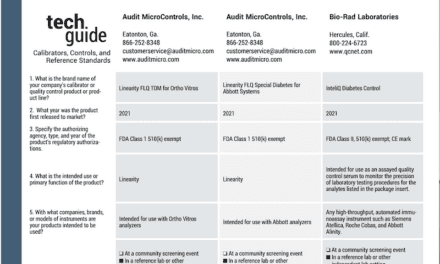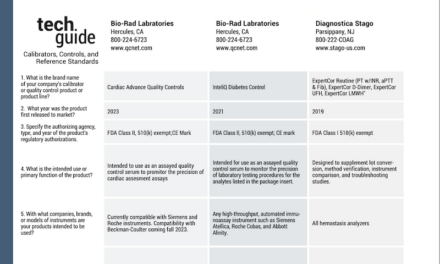
The GAO, an independent, nonpartisan agency, supports congressional oversight by, among other things, evaluating how well government policies and programs are working and investigating allegations of illegal and improper activities. In its investigation of clinical labs, the GAO found that real and potential lab-quality problems are masked by survey, complaint, and enforcement weaknesses. Furthermore, according to the report, the extent of lab-quality problems is unclear because the CMS has incomplete data about deficiencies identified by state survey agencies prior to 2004, and lab quality has not been assessed in a standardized manner. The report pointed to the fact that, historically, labs have known about surveys in advance, which, in the GAO’s view, allowed them to prepare for inspections.
The GAO has made several recommendations, including standardizing the reporting of deficiencies to permit comparisons across inspection organizations; working with survey organizations to ensure that educating lab workers does not preclude the identification and reporting of lab deficiencies; and establishing an enforcement database to monitor actions taken by the state survey agencies and regional offices on labs that lose their accreditation.
For the most part, those responding to the GAO report concur with the findings while pointing out a few areas of disagreement. For example, the CMS agreed with 11 of the GAO’s 13 recommendations and noted that the report provided insights into areas where it can improve, augment, and reinforce oversight.
Despite disagreements about a few points, progress is being made, and some of the recommendations in the report were being implemented even before the GAO issued it. For example, this year, JCAHO and CAP began conducting unannounced inspections at most of the hospitals they survey. In addition, the individual who was largely responsible for spearheading the GAO investigation, US Congressman Elijah E. Cummings (D-Md), has introduced the “Clinical Laboratory Compliance Improvement Act” (currently HR 686). The bill, which would institute many of the reforms GAO recommended, is in the early stages of the legislative process, and we’ll monitor its movement.
Recently, we conducted an informal survey to find out how visitors to CLP’s Web site (www.clpmag.com) feel about the quality of lab testing. A whopping 96% of respondents said that the quality of lab testing has improved in the past 10 years. However, as the GAO report points out, we still have a long way to go.



